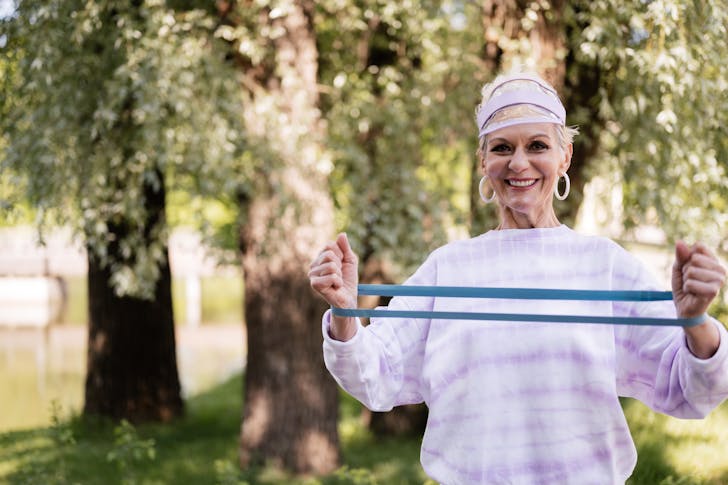How Lifestyle Changes Can Slow Cognitive Decline
Your lifestyle is not just about how you live. It shapes how you think. That is the clear message from a massive new study that proves simple everyday habits can help slow down memory loss and mental decline as we age.
The U.S. POINTER study tracked over 2,100 adults between the ages of 60 and 79. Some followed a structured lifestyle program with coaches, group sessions, and personalized plans. Others took a more self-guided approach. Both groups improved mentally, but the structured plan had stronger results. It helped delay brain aging by one to two years.

Shvets / Pexels / Exercise was a major cornerstone, the study shows. Participants in the structured group worked out four times a week.
They combined aerobic activities with strength training and stretching, which powered up their brains. Regular movement increases blood flow to the brain, keeping memory and thinking sharp.
Apart from that, eating habits also mattered. The diet followed was the MIND diet, a combo of Mediterranean and DASH. Think leafy greens, berries, whole grains, and olive oil. Processed foods were kept to a minimum. This type of eating plan is packed with antioxidants and nutrients that protect brain cells and support long-term cognitive health.
Cognitive Gains Were Clear
Memory and thinking skills improved in both groups, but the structured lifestyle program had a bigger impact. Coaches helped participants stay consistent. Group support kept them engaged. And the results were strong enough to suggest a real slowing of brain aging.
People didn’t need expensive treatments or cutting-edge tech. Just steady support, real food, movement, and connection.
Mental workouts played a role, too. Participants used tools like BrainHQ, a digital brain-training platform. These mental challenges helped improve focus, processing speed, and working memory. The brain, like a muscle, gets sharper when you use it.
Social Life Is a Game Changer
In the study, social engagement was essential. The structured program included 38 group meetings over two years. These were not just for fun. They gave people a space to connect, share, and support each other.
Isolation can quietly damage brain health. When people stay connected, they stay sharper. Group activities offered more than emotional support. They sparked mental activity, reduced stress, and gave participants a reason to stay active and engaged.

RDNE / Pexels / The benefits showed up regardless of age, gender, race, or genetic risk for Alzheimer’s. That means these lifestyle shifts aren’t just for a select few.
Instead, they are powerful and inclusive tools anyone can use. Structured lifestyle changes made a real, measurable difference. And even the self-guided group saw benefits. That shows that it is never too late to take action.
The POINTER study focused on normal brain aging. But researchers believe these same lifestyle choices could help delay or even prevent serious conditions like Alzheimer’s disease.
That is why the Alzheimer’s Association is investing $40 million to expand the program. They are building apps, training healthcare workers, and making these tools more accessible across the country. The goal is to make brain-healthy living easier for everyone.
The study confirms that it is never too late to adopt brain-healthy habits. Even modest changes, like increasing physical activity, improving diet, and staying socially engaged, can make a meaningful difference in preserving cognitive function.